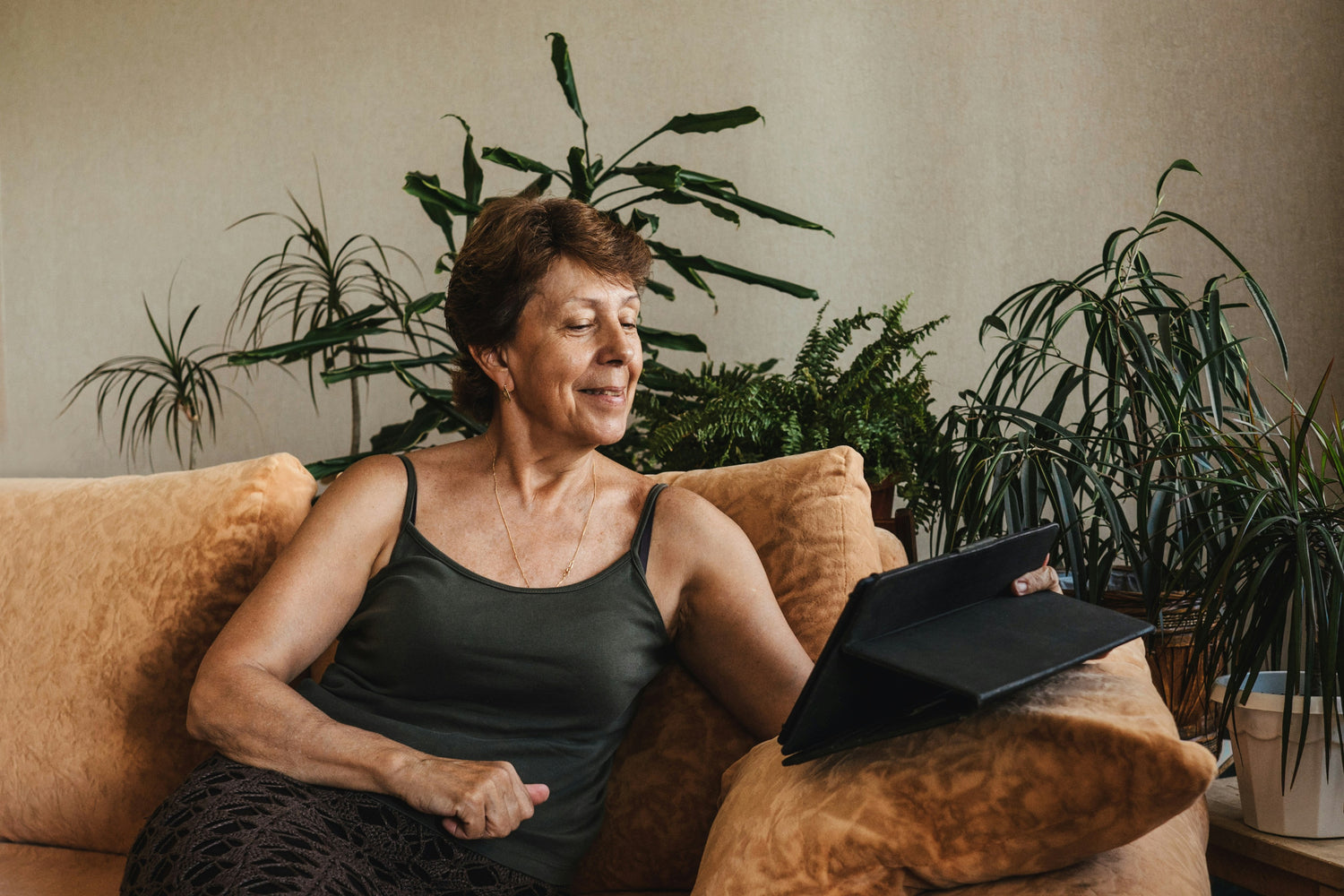'As the nights draw in and the days get shorter my mood really drops, what can I do to prevent SAD?'
If you're like most people with seasonal affective disorder, your symptoms start in the autumn and may continue into the winter months, sapping your energy and making you feel moody. Less often, seasonal affective disorder causes depression in the spring or early summer months too.
People with SAD can also suffer from what’s known as “circadian desynchrony,” when a person’s circadian clock doesn’t run to time. This may manifest as more time spent in bed awake, requiring more time to fall asleep, and more often, poorer overall sleep quality. The combination of these factors can impact several hormone systems, including those involved in appetite control and metabolism.
Women are typically more affected by SAD than men and living in areas that have longer darker nights - typical here in the UK – means we are more at risk.
One factor directly under our control is vitamin D. Exposure to sunlight stimulates the production of vitamin D in our skin, so in winter it's very easy to become low in this vital nutrient.
A vitamin D deficiency affects the brain's levels of melatonin, the hormone that controls when we sleep and wake. It also seems to cause problems with our levels of serotonin the "feel-good hormone" which can bring your mood down even further. As a result we feel tired, grumpy and crave sweet and starchy snacks to make us feel better. It’s a classic downward spiral.
There’s no easy answer to gathering enough vitamin D from food sources such as eggs and oily fish, or getting sufficient sunlight. With this in mind, I strongly suggest using a supplement from October through to early spring instead – unless you happen to be lucky enough to live somewhere sunny of course and you are aware of how much safe sun exposure your skin needs.
Another hormone worth considering is serotonin, made from the amino acid tryptophan, the best food sources of which include bananas, beans, chicken, eggs, turkey and fish.
More generally, avoiding the quick-fix foods helps combat the low energy dips. Make this easier by sticking religious to a low GI style menu.
If you make a special effort at breakfast to include protein-rich options it can help with steadier energy. If you don’t have the stomach for eggs first thing, try a homemade smoothie blended with silken tofu or Greek yoghurt.
Like at other times of the year, the ‘eat your greens’ mantra still applies. Spinach is rich in iron, helping to ward off fatigue. It is also a good source of vitamin B6 and folate, which are essential supports for the brain's ability to produce mood-boosting neurotransmitters, such as serotonin. Leafy green salads can be made more interesting with the addition of warm ingredients too such as roasted beetroot or goat’s cheese, and drizzle lemon juice over greens to assist with iron uptake.
Lastly, exercise outdoors each day as this has been repeatedly proven to help reduce depression, anxiety and symptoms of SAD.
There's no doubt about it, it is harder to motivate for a work out, or go for a run in the darker, colder mornings so why not shift your attention to lunchtime? Move from eating lunch 'aldesko' to enjoying lunch 'alfresco' - all you need is a flask of soup and a park nearby.
I guarantee you'll feel better for it.





